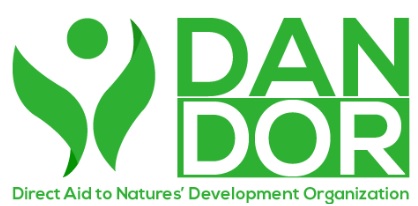
As the global instructional landscape remains to develop, tutoring networks have actually become an essential part in the pursuit for scholastic quality. These networks offer a diverse array of learning possibilities, satisfying pupils of every ages and academic degrees. They serve as an indispensable supplement to traditional instructional systems, supplying personalized advice and specialized expertise to help students achieve their academic aspirations.
In this article, we look into the globe of tutoring networks, exploring their framework, advantages, and the transformative Pure water is neutral. if water is neither an acid nor base what is the ph of the water effect they carry education. By understanding these networks, pupils, parents, and instructors can make enlightened decisions about integrating tutoring right into their educational techniques.
The Framework of Tutoring Networks
Tutoring networks vary commonly in their framework, however they generally incorporate both on-line and offline services. These networks might run as large-scale companies with a worldwide reach or as smaller, community-focused entities. The arrival of innovation has considerably expanded the reach and effectiveness of tutoring networks, enabling them to connect with students throughout different geographical places.
On-line tutoring systems have gained substantial popularity because of their benefit and ease of access. These platforms frequently include a large range of subject experts offered all the time.
In addition, they use sophisticated innovations such as video clip conferencing, interactive white boards, and electronic resources to create an engaging learning experience. Offline tutoring, on the other hand, normally happens in-person, permitting hands-on support and a personalized touch.
The tutors within these networks are usually experienced educators that focus on different subjects. They function either independently or as part of the tutoring network, supplying their experience and advice to aid students browse their academic obstacles.
- Online Tutoring Operatings systems: Supply virtual learning settings with adaptable scheduling.
- Community-Based Tutoring: Concentrate on localized support, fostering community involvement.
- Subject-Specific Networks: Tailored proficiency in locations like mathematics, scientific research, languages, etc.
- Hybrid Versions: Incorporates online resources with in-person sessions for detailed support.
Comprehending the framework of coaching networks can assist stakeholders select the most appropriate alternative based upon individual needs and preferences.
Advantages of Tutoring Networks
Tutoring networks use various advantages that contribute to the scholastic success of trainees. One of the key benefits is the personalized focus pupils obtain. In a conventional peer-to-peer learning class setting, it can be challenging for teachers to attend to the unique requirements of each pupil as a result of large course sizes and time restraints. Tutoring networks bridge this space by giving one-on-one or tiny team instruction customized to the learner’s individual strengths and weaknesses.
Moreover, tutoring networks commonly utilize specialized mentor methods that accommodate different knowing styles. This tailored strategy not just boosts understanding yet additionally improves pupils’ confidence in their capacities. By functioning very closely with well-informed tutors, trainees can create a much deeper understanding of the subjects they locate difficult.
Furthermore, coaching networks offer adaptability in knowing. Students can set up sessions at times that best fit their routines, permitting them to balance academic dedications with extracurricular activities or personal interests. This flexibility enables a more kicked back and hassle-free discovering atmosphere, conducive to academic success.
Choosing the Right Tutoring Network
Picking the appropriate tutoring network entails thinking about several crucial aspects to guarantee it lines up with the student’s academic objectives and finding out preferences. The initial step is to identify the specific areas or subjects where aid is required. This emphasis helps limit possible tutoring networks that focus on those topics.
- Analyze Tutor Accreditations: Make Sure tutors have the required credentials and experience.
- Review Mentor Approaches: Search for ingenious and versatile mentor techniques.
- Think About Technology Combination: Use systems with sophisticated tech devices for a richer learning experience.
- Check Evaluations and Reviews: Look for feedback from previous pupils to gauge success prices and satisfaction.
When these aspects are evaluated, possible students and their family members can make educated choices concerning which tutoring network will best sustain their educational trip.
The Future of Tutoring Networks
The future of tutoring networks is brilliant, driven by technical improvements and an enhancing need for tailored education and learning. As artificial intelligence and machine learning remain to establish, they are most likely to become integral components of coaching networks, using much more customized and effective knowing experiences.

Additionally, the worldwide dedication to education and learning equal rights will certainly additionally drive the development of tutoring networks. By breaking down geographical and socio-economic barriers, these networks can equalize access to quality education and learning, guaranteeing that every student has the possibility to succeed, regardless of their background.
Accepting Tutoring Networks for Academic Success
To conclude, coaching networks play a critical role in modern-day education and learning by giving personalized learning experiences that enhance conventional educational systems. Their flexibility, professional guidance, and cutting-edge methods make them a beneficial resource for trainees aiming to excel academically.
By comprehending the framework and advantages of tutoring networks, trainees and their families can make enlightened decisions that will boost their educational experience. As the future of education continues to develop, accepting these networks can be a transformative step in the direction of achieving academic quality.

Recent Comments